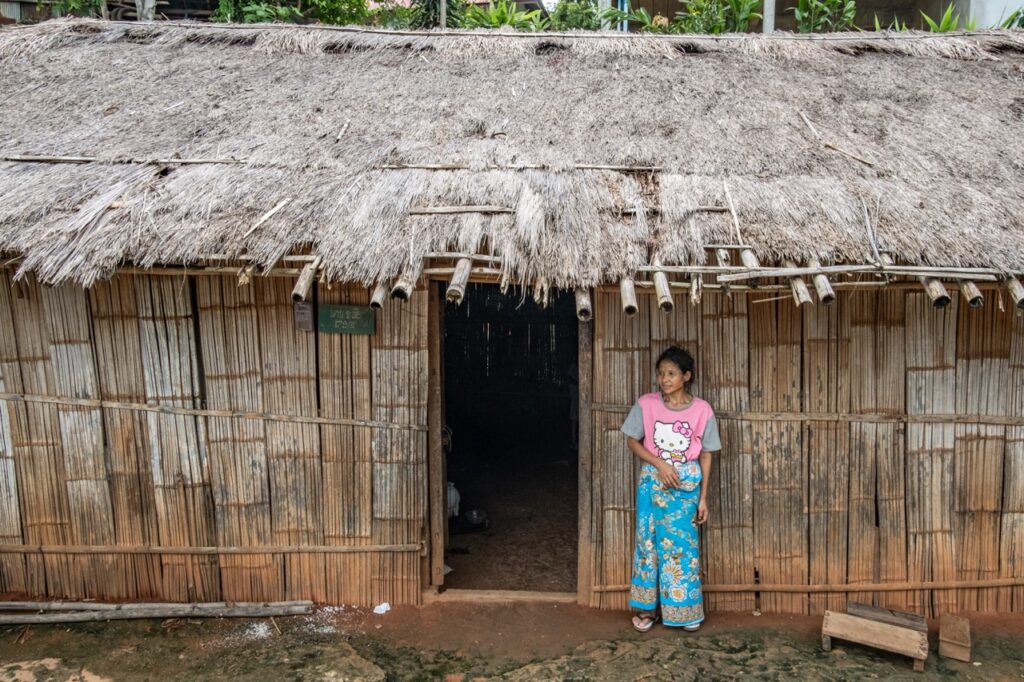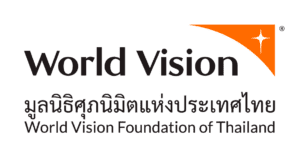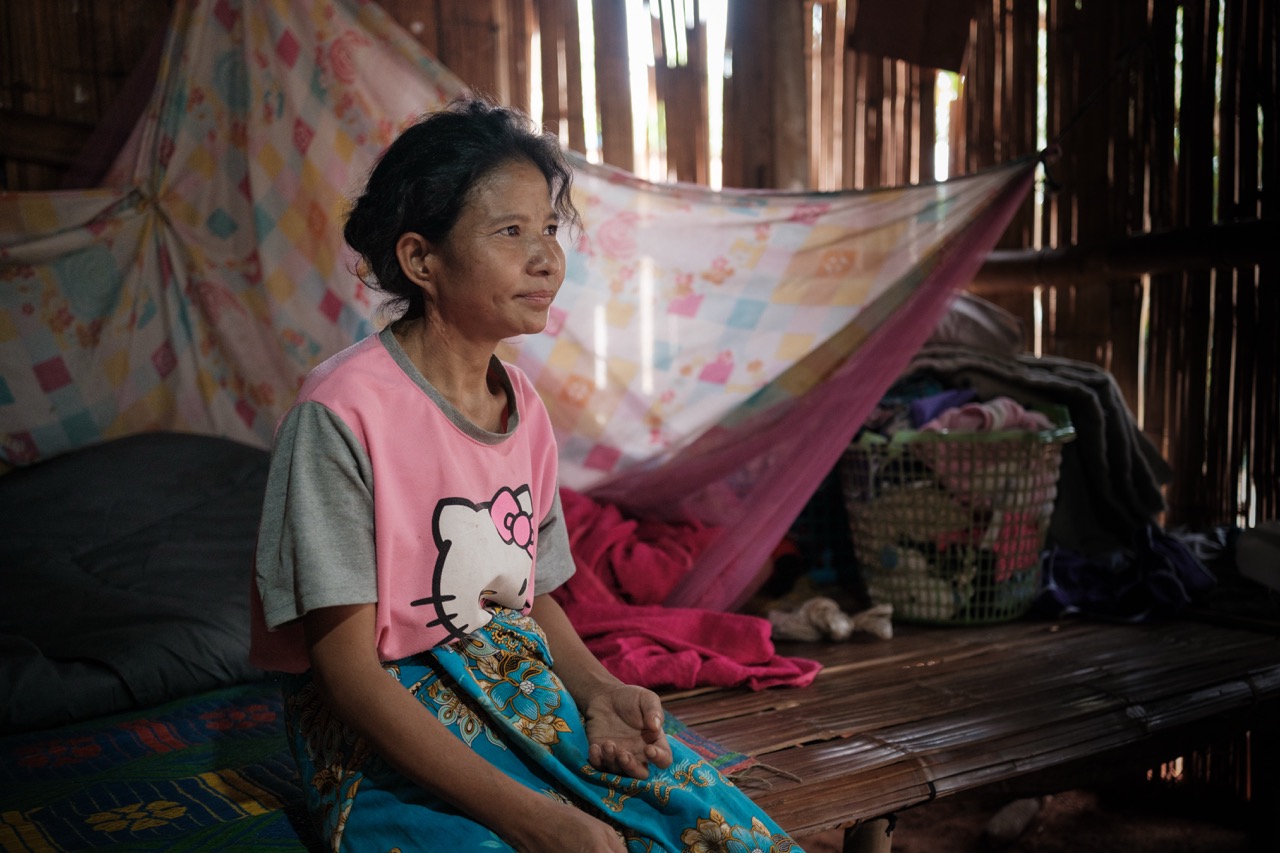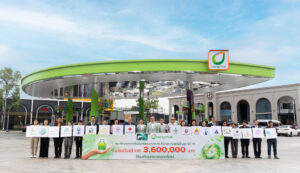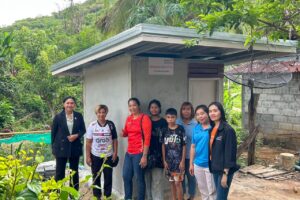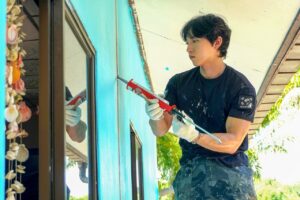Aye (pseudonym) and her husband Min (pseudonym) live in a bamboo hut perched on a hilltop in Mae Fah Luang, Chiang Rai, about 12 kilometers from the Thai-Myanmar border. Born in the Myanmar jungle as part of the Lahu ethnic minority group, Aye has now been living in Thailand for 30 years. She’s a mother of three, aged five to 17. “We had five children, but one passed away and the other was adopted by Min’s sister,” she shares. Like many migrants, Aye’s work varies depending on what is available – whether it’s carrying sand at construction sites, working on farms, or doing housework. Time and again Aye has met adversity with courage and resilience, and this was especially true when she was diagnosed with Tuberculosis (TB) at just 25 years old.
When Aye began experiencing persistent pain on one side of her body, along with arm spasms and a chronic cough, she was unsure where to seek help. Community members recommended Mae Fah Luang Hospital, where migrants could access free screening and testing. The doctors discovered that Aye had infected with TB. Reflecting on her diagnosis, Aye says “I didn’t feel much during this time. I just knew I needed to take the medicine so I could get better and get back to work on the farm.” She started the seven-month treatment and began to feel better, so she and her husband followed the path of many migrant workers and moved south to Betong for agricultural work. But she started to feel sick again. At the hospital in Betong, she was told she couldn’t be treated due to her financial and legal status. Min says he broke down crying but found hope in the services at Mae Fah Luang, “I was overwhelmed with sadness, but I knew Mae Fah Luang Hospital would treat her for free. I knew we had to come back.”
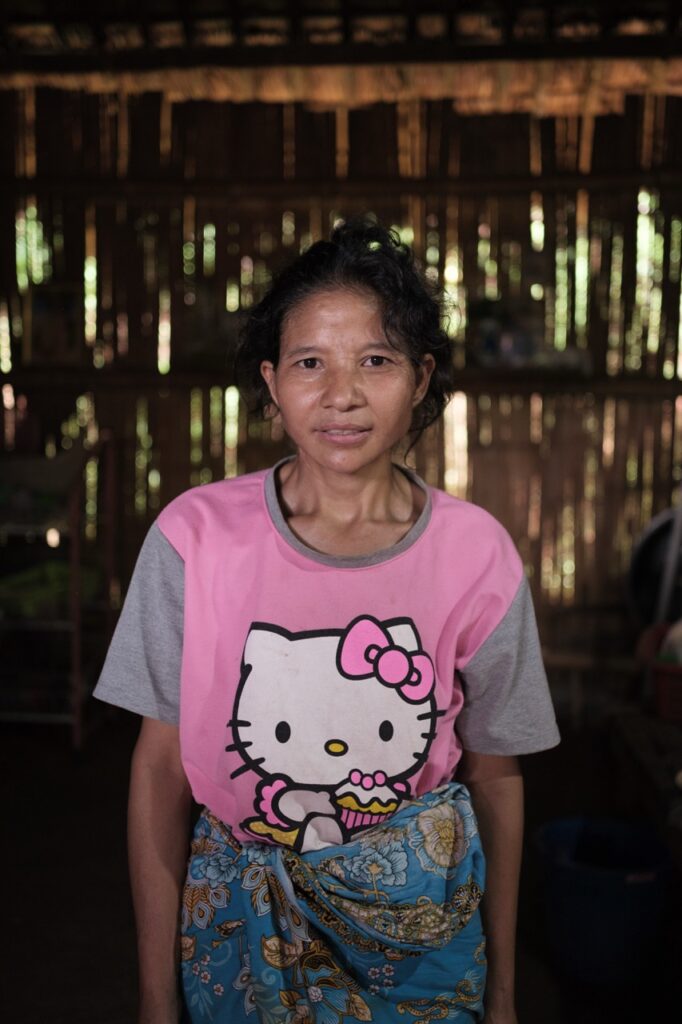
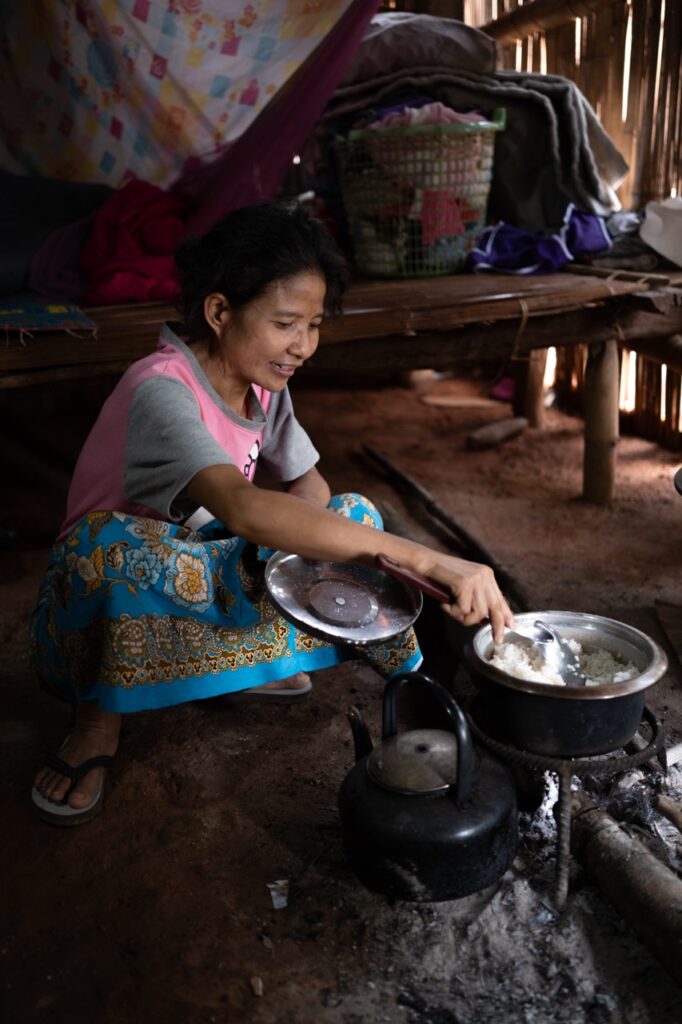
Aye returned to Mae Fah Luang and began a second round of TB treatment. “I was too sick to work and I was afraid my kids wouldn’t have enough to eat, but I was very confident the doctor would be able to treat me and I could get back to normal.” she says. During this time, the family heavily relied on support from World Vision Thailand. World Vision Thailand staffs came to do the at-home TB treatments every two weeks and provided living support to the family through support from the Global Fund. “I felt very glad that the World Vision Thailand staff came to visit me during this time, and I was very thankful for the support because it meant we had enough to feed the family.” she says. “World Vision Thailand staff came to our home several times with eggs, tinned fish, rice, salt and noodles.”
When World Vision Thailand staff visited her for a check up towards the end of her treatment, Aye was already back at work carrying sand. Min beams with pride, saying “When she started healing, I felt very proud. I also felt very happy that I have a companion again and we can go out to work together.” When asked about her dreams for their family’s future, it is clear there is only room for pragmatism. “I have to continue fighting, fighting to survive, to make money and continue living. If I can’t work hard, my family won’t have anything to eat.”
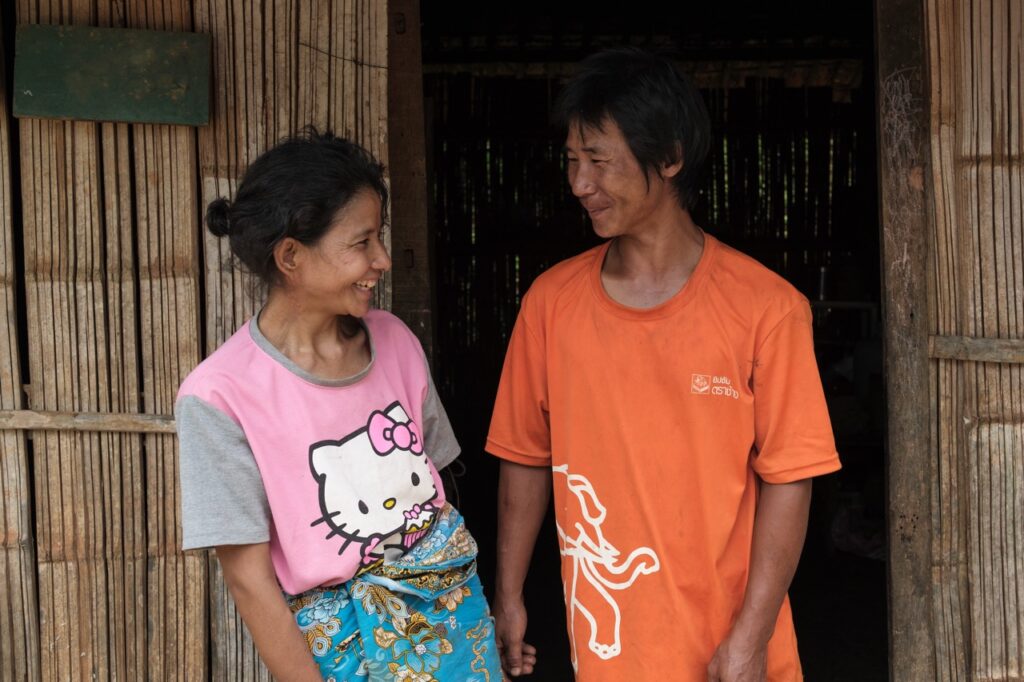
Fighting to survive is the harsh reality for many of the migrants from Myanmar’s ethnic minority groups. In these conditions, contracting tuberculosis doesn’t just have grave consequences for the infected person; it often means hunger for the whole family. World Vision Thailand’s work through Global Fund, supporting screening, testing, and treatment for tuberculosis, alongside the provision of living support, is a lifeline to the migrant communities in Mae Fah Luang. Aye’s story is just one example among many others who have received support.
In 2024, World Vision Thailand has promoted TB knowledge, prevention, and fundamental health to more than 10,600 migrants. 8,398 at-risk people were referred for screening and diagnosis, of which 807 were patients with tuberculosis (referrals from communities and hospitals). In addition, to promote good basic health. World Vision Thailand, under the Stop TB and AIDS through RRTTPR year 2024 – 2026 supported by the Global Fund, has also established Drop-in Centers and Health Post in the community as easy-to-access service points for migrant populations. There are 101 operating areas nationwide.
